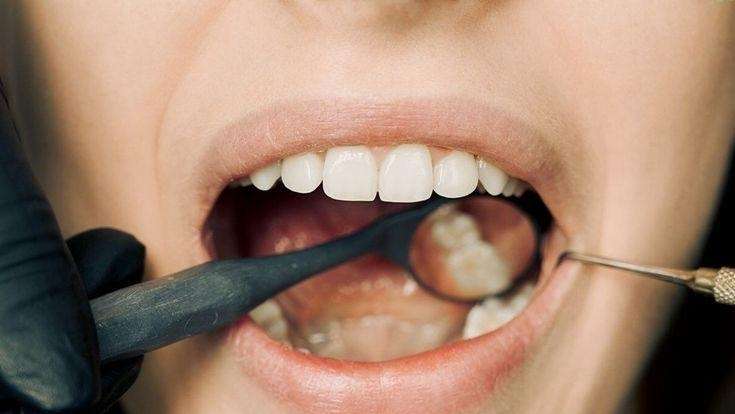
Maintaining good oral health is vital for overall well-being, yet poor oral hygiene continues to affect millions of Australians. In Tamworth, understanding the common causes of oral health issues and taking proactive measures can significantly improve dental outcomes for individuals and families. This blog will explore the primary causes of poor oral health, prevention strategies tailored for Tamworth residents, and actionable advice to maintain a healthy smile.
What Are the Leading Causes of Poor Oral Health?
Poor Oral Hygiene Habits
Failing to brush and floss effectively is the leading cause of oral health problems. Without regular cleaning, plaque—a sticky film of bacteria—builds up on the teeth, leading to cavities and gum disease.
-
Brushing: Many individuals either skip brushing or do so inadequately. Use fluoride toothpaste and brush for at least two minutes twice daily.
-
Flossing: Neglecting to floss leaves food particles and bacteria trapped between teeth, increasing the risk of gum disease.
High Sugar and Acidic Food Consumption
A diet high in sugar and acidic foods directly contributes to tooth decay and enamel erosion. Sugary snacks and drinks create an environment where bacteria thrive, producing acids that damage tooth enamel.
-
Examples of sugary foods include soft drinks, lollies, and processed snacks.
-
Acidic foods such as citrus fruits and vinegars also weaken enamel.
Smoking and Tobacco Use
Tobacco products harm oral health by reducing blood flow to the gums, staining teeth, and increasing the risk of oral cancer. Smokers are significantly more likely to experience gum disease than non-smokers.
Infrequent Dental Check-Ups
Skipping regular dental visits often leads to undiagnosed and untreated issues, such as cavities and gum disease. Early detection is crucial for preventing these problems from worsening.
Genetics and Predispositions
Some individuals are genetically predisposed to oral health issues like weak enamel or gum disease. While these factors cannot be controlled, preventive care can mitigate their impact.
Chronic Illnesses and Medications
Certain conditions, such as diabetes, exacerbate oral health problems. Similarly, medications that cause dry mouth reduce saliva production, increasing the risk of decay and gum disease.
How Can Tamworth Residents Prevent Poor Oral Health?
Daily Oral Hygiene Practices
-
Brush Regularly: Use fluoride toothpaste and a soft-bristled brush to clean teeth twice daily.
-
Floss Daily: Remove plaque and debris from between teeth to prevent gum disease.
-
Use Antiseptic Mouthwash: This helps reduce bacteria in the mouth and freshen breath.
Healthy Dietary Choices
-
Limit consumption of sugary and acidic foods.
-
Incorporate calcium-rich foods like milk, cheese, and leafy greens to strengthen teeth.
-
Stay hydrated to prevent dry mouth and promote saliva production.
Regular Dental Check-Ups
Tamworth residents should visit a dentist every six months for professional cleanings and early detection of oral health issues. Many local dental practices provide personalised care tailored to the community's needs.
Quit Smoking
Stopping tobacco use not only improves oral health but also reduces the risk of systemic diseases like cancer and heart disease.
Protect Teeth During Sports
For those engaging in contact sports, wearing a mouthguard is essential to prevent tooth damage and injuries.
Use Fluoride Products
Fluoride toothpaste and mouthwash help strengthen enamel and prevent cavities.
What Are the Effects of Poor Oral Health?
How Does Prevention Improve Oral Health?
Why Is Oral Health Education Important for Tamworth Residents?
Educating the community about oral health ensures that individuals and families can make informed choices. Local Tamworth initiatives and dental clinics play a crucial role in spreading awareness, promoting regular check-ups, and offering tailored solutions.
How Can Tamworth Oral Health and Dental Care Help?
For Tamworth residents seeking comprehensive dental care, Tamworth Oral Health and Dental Care provides expert services designed to improve oral health outcomes. Dentist Tamworth and team is committed to patient care, offering a full range of treatments, from preventative care to advanced dental procedures. Conveniently located, the clinic ensures personalised attention and education, empowering residents to maintain their oral health. Whether it's a routine check-up or specialised treatment, their approach emphasises comfort and long-term well-being.
Investing in your smile has never been easier—contact Tamworth Oral Health and Dental Care today for a consultation and take the first step towards healthier teeth and gums.
Read More: Can You Eat After a Cavity Filling?
References
-
Australian Dental Association (ADA). "Oral Health Statistics."
-
Better Health Channel. "Oral Hygiene Basics."
-
Health Direct. "Preventing Tooth Decay."
FAQs
1. What are the warning signs of poor oral health?
Warning signs include bad breath, bleeding gums, tooth pain, and sensitivity to hot or cold foods.
2. How often should I visit the dentist in Tamworth?
Visiting your dentist every six months is recommended for routine cleanings and early detection of potential issues.
3. Can poor oral health affect overall health?
Yes, poor oral health is linked to conditions like heart disease, diabetes, and respiratory infections.
4. What foods should I avoid for better oral health?
Avoid sugary drinks, sticky sweets, and acidic foods that erode tooth enamel.
5. Is fluoride necessary for good oral health?
Fluoride strengthens tooth enamel and helps prevent cavities, making it essential for oral hygiene.
6. How can Tamworth Oral Health and Dental Care assist me?
Tamworth Oral Health and Dental Care offers personalised dental services, preventative care, and expert advice to help you maintain excellent oral health.